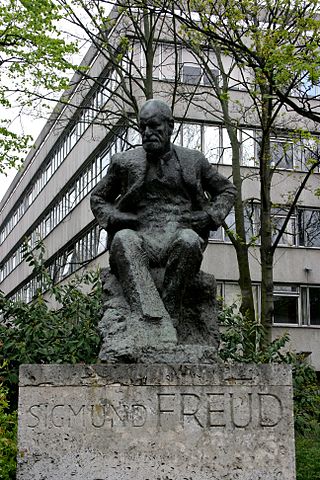Related Research Articles

Iain Banks was a Scottish author, writing mainstream fiction as Iain Banks and science fiction as Iain M. Banks, adding the initial of his adopted middle name Menzies. After the success of The Wasp Factory (1984), he began to write full time. His first science fiction book, Consider Phlebas, appeared in 1987, marking the start of the Culture series. His books have been adapted for theatre, radio, and television. In 2008, The Times named Banks in their list of "The 50 greatest British writers since 1945".

John Michael Crichton was an American author, screenwriter and filmmaker. His books have sold over 200 million copies worldwide, and over a dozen have been adapted into films. His literary works heavily feature technology and are usually within the science fiction, techno-thriller, and medical fiction genres. Crichton’s novels often explore human technological advancement and attempted dominance over nature, both with frequently catastrophic results; many of his works are cautionary tales, especially regarding themes of biotechnology. Several of his stories center specifically around themes of genetic modification, hybridization, paleontology and/or zoology. Many feature medical or scientific underpinnings, reflective of his own medical training and scientific background.

Sorley MacLean was a Scottish Gaelic poet, described by the Scottish Poetry Library as "one of the major Scottish poets of the modern era" because of his "mastery of his chosen medium and his engagement with the European poetic tradition and European politics". Nobel Prize Laureate Seamus Heaney credited MacLean with saving Scottish Gaelic poetry.
Ian Smith (1919–2007) was the Prime Minister of Rhodesia from 1964 to 1979.
Crichton may refer to:

The Tavistock and Portman NHS Foundation Trust is a specialist mental health trust based in north London. The Trust specialises in talking therapies. The education and training department caters for 2,000 students a year from the United Kingdom and abroad. The Trust is based at the Tavistock Centre in Swiss Cottage. The founding organisation was the Tavistock institute of medical psychology founded in 1920 by Dr. Hugh Crichton-Miller.

Iain Crichton Smith, was a Scottish poet and novelist, who wrote in both English and Gaelic. He was born in Glasgow, but moved to the Isle of Lewis at the age of two, where he and his two brothers were brought up by their widowed mother in the small crofting town of Bayble, which also produced Derick Thomson. Educated at the University of Aberdeen, Crichton Smith took a degree in English, and after serving in the National Service Army Education Corps, went on to become a teacher. He taught in Clydebank, Dumbarton and Oban from 1952, retiring to become a full-time writer in 1977, although he already had many novels and poems published.

Eilean Bàn is a six-acre (2.4 ha) island between Kyle of Lochalsh and the Isle of Skye, in the historic county of Ross and Cromarty in the Highland local government area. The Skye Bridge uses the island as a stepping-stone as it crosses the mouth of Loch Alsh from the mainland to Skye.
Chapman was a literary magazine based in Edinburgh, Scotland. It has published many Scottish and international authors, including Iain Crichton Smith, Alasdair Gray, Sorley MacLean and Kathleen Raine. It covered new poetry and short fiction, as well as critical essays and reviews.
Robert Crichton was an American novelist.
Stewart Conn is a Scottish poet and playwright, born in Hillhead, Glasgow. His father was a minister at Kelvinside Church but the family moved to Kilmarnock, Ayrshire in 1941 when he was five. During the 1960s and 1970s, he worked for the BBC at their offices off Queen Margaret Drive and moved to Edinburgh in 1977, where until 1992 he was based as BBC Scotland's head of radio drama. He was Edinburgh's first makar or poet laureate in 2002–05.
Angus Peter Campbell is a Scottish award-winning poet, novelist, journalist, broadcaster and actor. Campbell's works, which are written mainly in Scottish Gaelic, draw heavily upon both Hebridean mythology and folklore and the magic realism of recent Latin American literature. In an interview prior to his death, Sorley MacLean, who is with Alasdair Mac Mhaighstir Alasdair one of the two greatest writers in the history of Scottish Gaelic literature, called Campbell one of the best living Scottish poets in any language.
Derick Smith Thomson was a Scottish poet, publisher, lexicographer, academic and writer. He was originally from Lewis, but spent much of his life in Glasgow, where he was Professor of Celtic at the University of Glasgow from 1963 to 1991. He is best known for setting up the publishing house Gairm, along with its magazine, which was the longest-running periodical ever to be written entirely in Gaelic, running for over fifty years under his editorship. Gairm has since ceased, and was replaced by Gath and then STEALL. He was an Honorary President of the Scottish Poetry Library, and a Fellow of the Royal Society of Edinburgh and the British Academy. In June 2007, he received an honorary degree from Glasgow University.
The Scottish Gaelic Renaissance is a continuing movement concerning the revival of the Scottish Gaelic language and its literature. Although the Scottish Gaelic language had been facing gradual decline in the number of speakers since the late 19th century, the number of young and fluent Gaelic speakers is quickly rising. A similar trend is also taking place in the language revival of Canadian Gaelic in Nova Scotia, New Brunswick, and Prince Edward Island.
Mac a' Ghobhainn is a Scottish Gaelic surname, meaning "son of the smith". The surname is used as a Scottish Gaelic form of several English-language surnames: MacGowan, and McGowan; and in Glasgow and Moray, the surnames MacGavin and McGavin. The feminine form of Mac a' Ghobhainn is Nic a' Ghobhainn.

Kevin MacNeil is a Scottish novelist, poet, screenwriter, lyricist and playwriter. He was born and raised on the Isle of Lewis in the Outer Hebrides.

Dàin do Eimhir is a sequence of sixty poems written in Scottish Gaelic by Sorley MacLean. Considered MacLean's masterpiece, the poems deal with intertwining themes of romantic love, landscape, history, and the Spanish Civil War, and are among the most important works ever written in Scottish Gaelic literature.
Isobel Murray is a Scottish literary scholar, Emeritus Professor at the University of Aberdeen. She edited the work of Oscar Wilde and Naomi Mitchison. She also edited a series of interviews which she and her husband Bob Tait carried out with Scottish writers, and wrote a biography of the writer Jessie Kesson.
References
- ↑ Scottish Book Trust - 50 Best Books
- ↑ MacNeil, Kevin (1 January 2005). "100 Best Scottish Books of all Time. Iain Crichton Smith - Consider the Lilies (1968)". The List. Retrieved 4 July 2016.